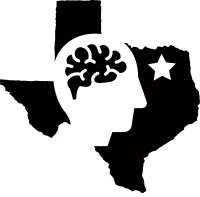Eating disorders typically arise during adolescence. These conditions are often life-threatening and very serious. While acute eating disorder treatment is usually done in an inpatient (i.e. hospital), partial hospitalization, or residential center, outpatient treatment following acute care is critical. Usually this involves an individual therapist, a family therapist, a physician, and a dietician – but may also involve a psychiatrist. North Texas Adolescent and Young Adult Psychology offers both individual therapy and family therapy for patients with eating disorders, though you will need different clinicians for each service.
Individual Eating Disorder treatment is multifaceted, and involves treating not only the disordered eating behaviors, but also the accompanying anxiety and/or depression that a patient may be experiencing. In addition, exploring their awareness of internalized ideas of beauty/perfection/health (depending on the individual) and where those ideas came from can be truly transformative. Individuals can learn to be skillful in “talking back” to their eating disorder using CBT and DBT skills, and can build self-esteem and confidence.
Family Therapy treatment focuses on how engaging the entire family can be helpful to the individual who is fighting an eating disorder. Often times this means providing an environment where the patient can speak freely with their family (and family can speak with the patient) in a judgement-free space ; the therapist acts a neutral party to help moderate difficult conversations. It usually also includes improving family communication, reducing conflict, identifying shared values and building on existing family strengths.
Call us today to make an appointment and see if we’re a good fit for you!
Individual Eating Disorder treatment is multifaceted, and involves treating not only the disordered eating behaviors, but also the accompanying anxiety and/or depression that a patient may be experiencing. In addition, exploring their awareness of internalized ideas of beauty/perfection/health (depending on the individual) and where those ideas came from can be truly transformative. Individuals can learn to be skillful in “talking back” to their eating disorder using CBT and DBT skills, and can build self-esteem and confidence.
Family Therapy treatment focuses on how engaging the entire family can be helpful to the individual who is fighting an eating disorder. Often times this means providing an environment where the patient can speak freely with their family (and family can speak with the patient) in a judgement-free space ; the therapist acts a neutral party to help moderate difficult conversations. It usually also includes improving family communication, reducing conflict, identifying shared values and building on existing family strengths.
Call us today to make an appointment and see if we’re a good fit for you!
* Our practice requires that eating disorder patients be under the care of a competent physician (psychiatrist, family care physician, internal medicine specialist, pediatrician etc.), given the life-threatening nature of the disorders.
It's important to coordinate care with each other to monitor physical and mental health.
We can also work with your inpatient and partial-hospitalization teams to transfer care.
It's important to coordinate care with each other to monitor physical and mental health.
We can also work with your inpatient and partial-hospitalization teams to transfer care.

